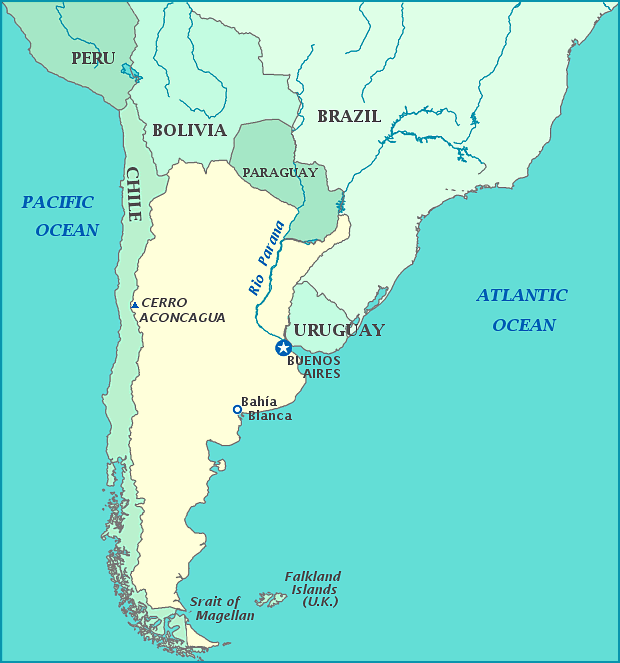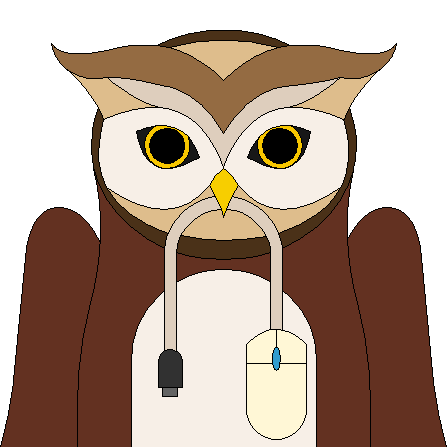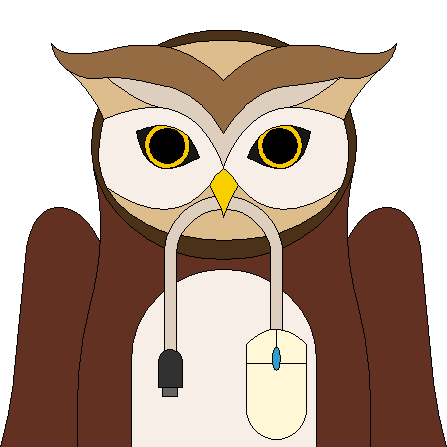
Quill's Quiz - 1100 Question US Mega Geography Quiz
Print this map of Argentina US States and Capitals Map Quiz
Free Maps, Map Puzzles and Educational Software: Owl and Mouse Educational Software
Print this map of Argentina US States and Capitals Map Quiz
Free Maps, Map Puzzles and Educational Software: Owl and Mouse Educational Software
Argentina has been inhabited since the Paleolithic and was home to several different tribes until the 16th century CE. The Spanish began to colonize the area in 1512, spreading rapidly and naming the land after what they desperately sought: silver. The Spanish were swift and cruel in eradicating natives, many saw them as having no souls, and without a united force, the tribes had no chance against early firearms. The Spanish set up many mines for silver, as well as for gold, calling the area as the Vice-royalty of Peru, part of which would become Argentina.
The Spanish were not the only ones interested in the land and its resources; Buenos Aires, the capital of the Vice-royalty, repelled two British invasions in 1806 and 1807. Argentina declared war in 1810 and fought for independence until 1818, followed by fighting a civil war until 1861. Many other countries went through the same events; Banda Oriental—Now Uruguay—Paraguay, and Bolivia were also part of the Vice-royalty and fought their own wars for independence and stability. With the Spanish evicted, the government encouraged other foreigners who resettled the land in the second largest wave of immigration in the world. These newcomers brought such prosperity—in the form of cattle ranching—to the new nation, whose new national economy soon surpassed Germany and France.
Good times couldn't last, however. In 1930, the government was overthrown, which began a slow economic decline. Argentina remained neutral for most of WWII, only joining the allies in the last month of the war after a second coup. Juan Domingo Peron, Minister of Welfare at the time, was fired and jailed during the coup for his popularity with the working class. His fame became a gift, though, and he was later liberated and voted into office. Peron made many reforms, improving wages, working conditions, nationalizing services, paying external debt, and increasing employment to nearly 100% while his wife Eva was busy doing everything she could for women's suffrage. His work, called Peronism, worked well until 1950, when the economy began to decline due to over-expenditure.
After Eva died in 1948, Peron resigned and was exiled to Spain in 1955, following an assassination attempt, led by the Navy. The 'Dirty War' or 'Guerra Sucia' began in 1974, heralding a period of terrorism, military versus civilians, and murder and torture of anyone thought to be connected with socialism.
Despite defeat within 74 days, Argentina still claims the Falkland Islands, which it invaded in 1982 with the intent to take them from the British. The war ended the next year. Argentina has been officially known as the Argentine Republic since 1828. It is the 8th largest country in the world and the second largest country in Latin America. It is home to Mt. Aconcagua, the highest point in the southern hemisphere and San Julian Great Depression, the lowest point on land in the world. Most of the population lives in a temperate zone, while some live in tropical areas in the north or even in subarctic parts in the far south, enjoying the country's high GDP and Human Development Index ratings.
The Spanish were not the only ones interested in the land and its resources; Buenos Aires, the capital of the Vice-royalty, repelled two British invasions in 1806 and 1807. Argentina declared war in 1810 and fought for independence until 1818, followed by fighting a civil war until 1861. Many other countries went through the same events; Banda Oriental—Now Uruguay—Paraguay, and Bolivia were also part of the Vice-royalty and fought their own wars for independence and stability. With the Spanish evicted, the government encouraged other foreigners who resettled the land in the second largest wave of immigration in the world. These newcomers brought such prosperity—in the form of cattle ranching—to the new nation, whose new national economy soon surpassed Germany and France.
Good times couldn't last, however. In 1930, the government was overthrown, which began a slow economic decline. Argentina remained neutral for most of WWII, only joining the allies in the last month of the war after a second coup. Juan Domingo Peron, Minister of Welfare at the time, was fired and jailed during the coup for his popularity with the working class. His fame became a gift, though, and he was later liberated and voted into office. Peron made many reforms, improving wages, working conditions, nationalizing services, paying external debt, and increasing employment to nearly 100% while his wife Eva was busy doing everything she could for women's suffrage. His work, called Peronism, worked well until 1950, when the economy began to decline due to over-expenditure.
After Eva died in 1948, Peron resigned and was exiled to Spain in 1955, following an assassination attempt, led by the Navy. The 'Dirty War' or 'Guerra Sucia' began in 1974, heralding a period of terrorism, military versus civilians, and murder and torture of anyone thought to be connected with socialism.
Despite defeat within 74 days, Argentina still claims the Falkland Islands, which it invaded in 1982 with the intent to take them from the British. The war ended the next year. Argentina has been officially known as the Argentine Republic since 1828. It is the 8th largest country in the world and the second largest country in Latin America. It is home to Mt. Aconcagua, the highest point in the southern hemisphere and San Julian Great Depression, the lowest point on land in the world. Most of the population lives in a temperate zone, while some live in tropical areas in the north or even in subarctic parts in the far south, enjoying the country's high GDP and Human Development Index ratings.


